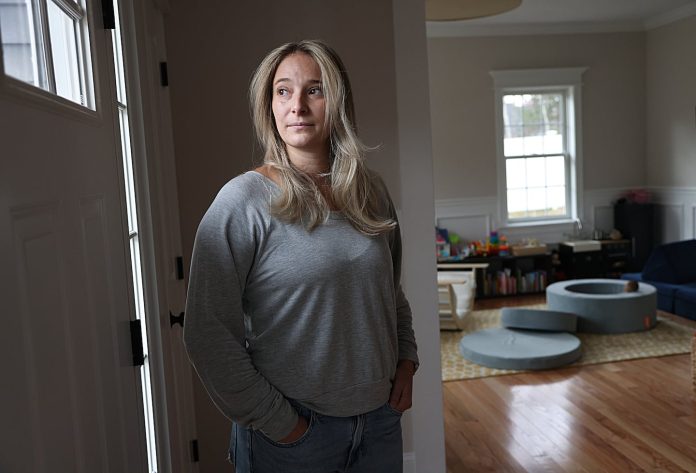The contract dispute between the state’s largest health insurer and the largest medical provider in Central Massachusetts also involves two of the most intractable problems in health care — the seemingly unsustainable cost of health care and the acute shortage of primary care doctors. And for one side to prevail, the other will likely have to give up something, in a confrontation where regardless of how it all shakes out, patients likely won’t be happy.
UMass has said without increased rates, it won’t be able to hire more nurse practitioners and physician’s assistants to help ease access to primary care and may have to reduce what it pays primary care providers. Meanwhile Blue Cross has said it has to hold the line on rising health care spending, to protect employers and employees who can no longer bear the costs.
The dispute is a bellwether for what is likely to come with other providers and insurance contracts, as both sides face financial challenges, and Blue Cross in particular has said it has to stand firm to control ever-rising costs.
“I think we will be seeing a lot more of this, and it’s going to be increasingly difficult,“ said John McDonough, a professor at the Harvard T.H. Chan School of Public Health. “Both of them feel they are between a rock and a hard place.”

For thousands of firefighters in Central Massachusetts, the fight boils down to a lose-lose situation: they may have to give up access to their doctors and local hospital in exchange for keeping insurance premiums within reach. According to Rich MacKinnon, president of a statewide union, premiums for some cities and towns that employ his firefighters are increasing by as much as 20 percent.
“Unfortunately, that’s the reality we’re coming to,” said McKinnon of the Professional Fire Fighters of Massachusetts.
The confrontation comes as many patients are in the annual open enrollment period and now some may have to contemplate a different insurance plan, while others may even have to find an entire new team of doctors.
The sides are largely at an impasse over the size of the reimbursement increase. Blue Cross said it has offered an increase in its payments to UMass that amount to 3.58 percent annually over a three-year contract.
While UMass wasn’t far off in the overall increase it requested from Blue Cross — 3.6 percent annually for its medical group and hospitals — it is seeking higher reimbursements for “advanced practice providers,” such as nurse practitioners and physician’s assistants, as well as incentives for when providers hit certain quality measures.
A stalemate could disrupt access to primary care, specialists, and hospital services at UMass for about 185,000 patients. Negotiations are ongoing and the contract expires on Dec. 31. However even after months of discussions, the sides haven’t reached an agreement, though a source close to the discussions said the sides are making meaningful progress.
The showdown comes at a time when both the health system and the insurer are under intensifying financial pressure. UMass, where more than one quarter of patients are on Medicaid, recently said it slashed some programs because of current financial struggles as well as to prepare for looming cuts to Medicaid, the government insurance program for the poor and disabled.
Meanwhile, in the first nine months of 2025, Blue Cross reported its operating losses nearly doubled, to $213 million from $114 million during the same period a year earlier.
“It’s two organizations, both nonprofits, both struggling a bit financially,” said Dr. Eric Dickson, UMass Memorial Health chief executive. “We have to figure out what is fair to both parties, and look at it from both perspectives.”
The negotiations underscore not only the heightened pressures providers and nonprofit insurers are under, but also one of the most fraught topics confronting the health care ecosystem: how to pay for primary care.
More primary care visits in Massachusetts are now handled by advanced practice providers. Dickson said most insurers reimburse those providers approximately 85 percent of what they pay primary care physicians. But Blue Cross pays less than that, he said.
Increasing the reimbursement would allow UMass to hire more nurse practitioners and physician’s assistants, Dickson said.
Then there are incentives for quality care. Many insurers have their own such programs, and make payments when doctors hit certain metrics, such as getting people in for mammograms or immunizations. But Dickson said providers had to hit too many goals for different insurers, so UMass consolidated all those into one program and created a $10 million fund that it wants all insurers to pay into.
The money is already being paid out. But without contributions from Blue Cross, Dickson questions whether UMass can continue paying the incentives, which could potentially reduce primary care compensation.
“I hate that patients are in the middle of this dispute, but if we don’t get what we need, programs will close and patients will suffer,” he said.

Blue Cross said it is negotiating for the total value of the contract, without regard for how the health system chooses to allocate its payments. When combining all the different requests from UMass, Blue Cross said the health system is asking for around a 6.6 percent increase — which UMass disputes.
“Over the past 5 years, we’ve invested significantly in UMass — so much so that they’re now the second highest paid hospital system in the state, second only to Mass General Brigham,” a spokesperson for Blue Cross said in a statement. “UMass has prioritized allocating increases to their physicians versus [advanced practice providers] in prior contracts.”
In the absence of an agreement, a spokesperson said the insurer is assisting members, including finding them new providers. Moreover, the insurer continues to cover emergency care, regardless if a provider is in network.
McDonough, of the Harvard public health school, said the current landscape is among the worst in his 40 years of watching the health care industry.
“I cannot recall a time when there are so many parts of the system that have their backs up against the wall the way we see it now,” he said. “Rarely do we get to a point where there are this many parties at this level of threat all at once.”
Not only will that likely lead to more provider and insurer contracting disputes, but it has led to more severe responses from different parts of the health care system. Insurers are imposing audits on providers based on how they bill; others are penalizing hospitals for using out-of-network providers.
“Every direction you look, there is either right now or (will be) a brewing crisis,“ McDonough said. ”This is a bad time. It’s no comfort to UMass or Blue Cross, but there is a lot of company in this column.”
The Massachusetts Laborers’ Benefit Funds, which provides health benefits to 10,000 laborers across the state, urged UMass to come to an agreement that didn’t raise health care costs even more.
“Please consider who pays for your services,” the group wrote in a letter to Dickson. “On an annual basis our Funds pay approximately $6 million to your group and associated providers. An increase on the magnitude UMass proposes could mean materially less money in the paychecks of the men and women that work hard every day to build the communities and infrastructure around your facilities.”
Meanwhile patients feel they have been caught in the crossfire.
“It’s just infuriating,” said Karen Costa, from Gardner. “I feel they are using us as pawns.”
Costa, her husband, and her son all received letters that their primary care physicians would become out of network unless the sides reach an agreement. The insurer conditionally reassigned them to new providers, however her 16-year-old son was given a clinician in Boston — over two hours away.
The change is particularly frustrating for Costa and her family, who last year scrambled to find a new primary care provider when their previous practice closed.
“Now pretty much a year later we get this letter saying we will have to change again,” Costa said. “I have chronic illnesses, and it’s an absolute nightmare to think about changing doctors. I have to start from scratch.”
For Reilly, in Whitinsville, switching insurers isn’t an option, Blue Cross is the only option under her husband’s insurance. So she worries what it would mean for her family to not have in-network benefits with UMass, the region’s only academic medical center, level one trauma center, and children’s medical center.
“It’s hard to be in this situation where it doesn’t feel like the people making these decisions are thinking about the fact that these contract negotiations impact real families whose lives heavily depend on care here in central Mass,” Reilly said.
“It’s unfortunate we got into a situation where the system doesn’t prioritize the people they serve,” she added, “and they are just worried about the bottom line.”
Jessica Bartlett can be reached at jessica.bartlett@globe.com. Follow her @ByJessBartlett.







